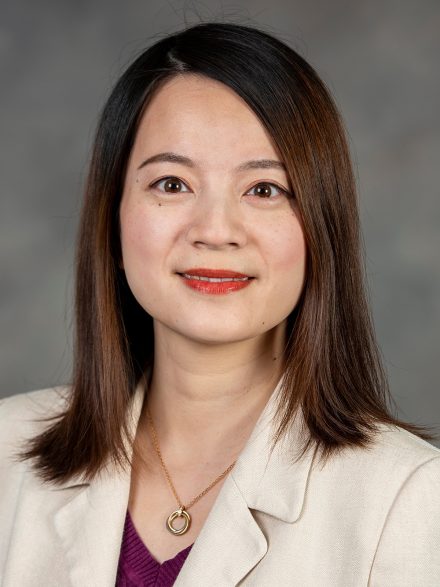The assistant professor of communication design co-published an article titled “Investigating Types of Second Screeners and Their Social Media Behaviors” in the Journal of Communication Technology.
Jenny Jiang, assistant professor of communication design, and three collaborators coauthored a new research article, titled “Investigating Types of Second Screeners and Their Social Media Behaviors,” in the Journal of Communication Technology. The publication is the official journal of the Communication Technology division of the Association for Education in Journalism and Mass Communication.

Jiang collaborated with Ruobing Li of Stony Brook University, Lance Porter of Louisiana State University, and Rui Wang of Communication University of China to explore the technology usage of individuals who watch television while also using a secondary electronic device (smartphone, tablet, etc.). According to the journal article, almost 90% of the U.S. respondents claimed to use their smartphone while viewing TV in 2017, up from 70% just six years prior.
The quartet used survey data on second screening activities while watching eight types of television programs among 570 Twitter users. This led to the identification of four types of second screeners: Second Screeners for Politics and News, Second Screeners for Sporting Events and Commercials, High Second Screeners, and Low Second Screeners.
The authors incorporated survey data with a year’s worth of Twitter activities from the survey respondents, and their paper extends the previous research on second screening as purposive hybrid media practice by examining how fine-grained Twitter behaviors are associated with four types second screeners. The authors also discussed the implications of how different types of television programs can better engage with different types of second screeners.
“This study represents an exemplary study of combining social media analytics with survey research to explore more fine-grained Twitter behavioral patterns that are associated with various types of second screeners in a more ecologically valid way,” Jiang said. “It also contributes to the less researched area of how the hybrid media practices are associated with information seeking beyond the scope of politics.”
Ke (Jenny) Jiang earned her doctoral degree from the University of California, Davis, and is a computational social scientist in the areas of social and semantic network analysis, and social media analytics. Her research interests include communication technology, collective intelligence on social media, social movements and campaigns, and international communication. She has published in top journals including International Journal of Communication, Social Science Computer Review, Human Communication Research, Government Information Quarterly, Social Network Analysis and Mining, and Scientometrics.


